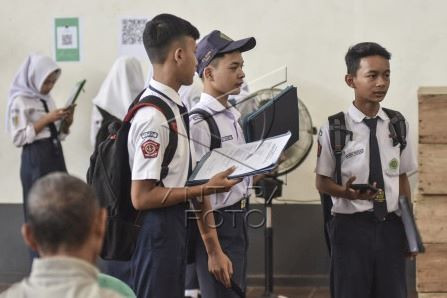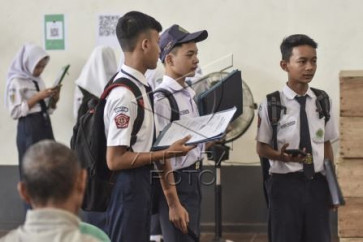Popular Reads
Top Results
Can't find what you're looking for?
View all search resultsPopular Reads
Top Results
Can't find what you're looking for?
View all search resultsCan AI disrupt Indonesia’s learning crisis?
Rather than being disruptive, AI offers potential solutions in tackling the country's two-pronged learning crisis: student learning and teacher competency.
Change text size
Gift Premium Articles
to Anyone
I
ndonesia faces severe challenges in literacy achievements, consistently ranking in the bottom 10 in international assessments over the past two decades. The situation is dire.
By the World Bank's estimates, 53 percent of Indonesian students are unable to read a simple text with comprehension by age 10, or roughly 13 million elementary school children. The pandemic has exacerbated this problem, with a large-scale study by INOVASI finding that girls had lost the equivalent of six months of literacy and four months for boys.
What caused this crisis in the first place? What solutions have been tried and have they worked? Can artificial intelligence (AI) disrupt this learning crisis?
Solutions to date point to the problem of teacher competence. The Education, Culture, Research and Technology Ministry has made several efforts to mitigate the adverse effects of COVID-19 on education. It has advocated differentiated learning, often referred to as teaching at the right level (TaRL), an approach that groups students based on their competences and uses interactive activities to accelerate learning.
To widely disseminate differentiated learning, the ministry launched Merdeka Mengajar (Independent Teaching), an online platform for teachers to access references and best practices. It identified and trained guru penggerak (exemplary teachers) as instructional leaders, fostering professional development communities and establishing stronger relationships with parents and communities. The ministry also identified sekolah penggerak (model schools) and trained educators at these schools to support other schools in implementing the reforms.
However, while these reforms theoretically enable teachers to adopt differentiated learning, practical implementation at scale remains challenging. By the end of this year, the Guru Penggerak and Sekolah Penggerak programs will reach, at best, only around 5 percent of the country’s 4 million teachers. The rest of the schools will have to rely on the Merdeka Mengajar platform.
Let's keep in mind that since 2020, the ministry has rolled out 26 episodes in its Merdekar Belajar (Independent Learning) program, 11 of which are relevant to elementary schools.



















